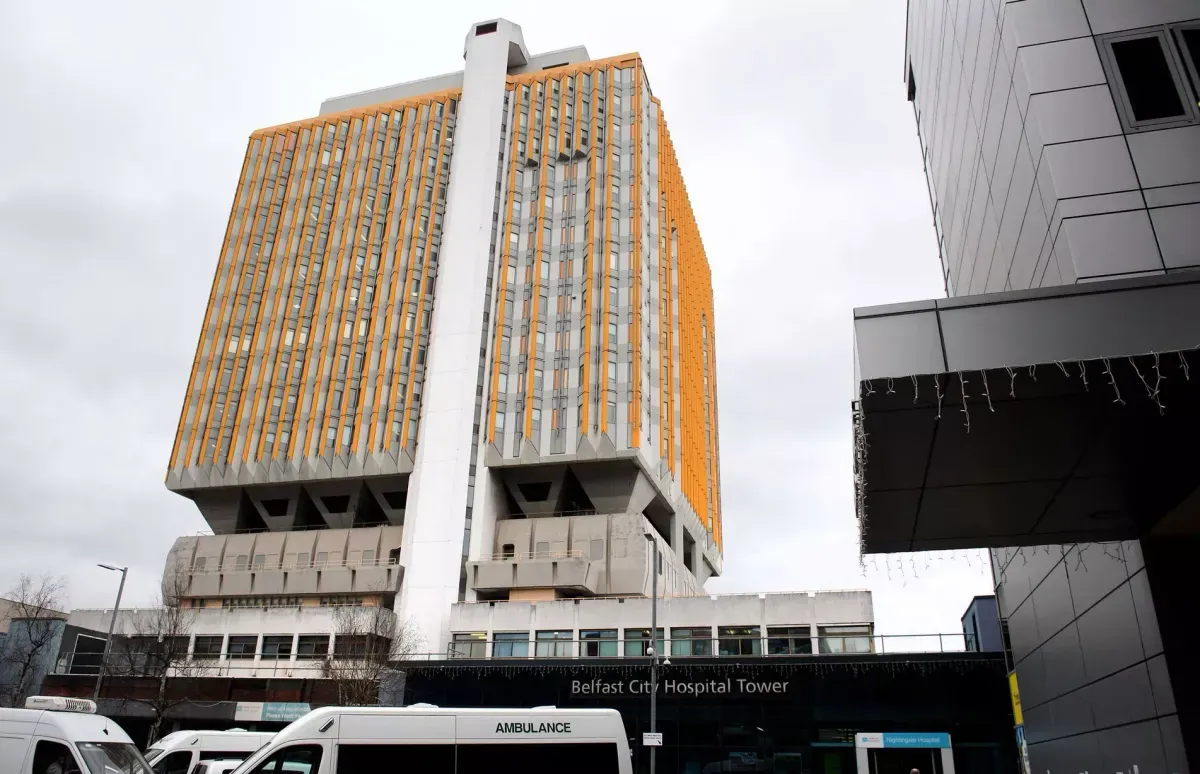Belfast Hospital Staff Disciplined for Removing Prince Andrew Plaque
A plaque commemorating Prince Andrew's 1986 visit to Belfast City Hospital was removed without authorization in 2022. Staff faced disciplinary action following an investigation into the incident.

In a recent development, staff members at Belfast City Hospital have faced disciplinary action for the unauthorized removal of a plaque commemorating a visit by Prince Andrew. The incident, which occurred in January 2022, has sparked an investigation and raised questions about the handling of royal memorabilia in light of controversy.
The plaque in question was installed near the main entrance of the hospital's tower, marking its official opening by Prince Andrew in June 1986. The Belfast City Hospital tower, standing at 85 meters, holds the distinction of being the tallest building in Ireland.
The removal coincided with a tumultuous period for Prince Andrew, who had been stripped of his military titles and royal patronages. This action by Buckingham Palace, the official London residence of the British monarch, was an attempt to mitigate the fallout from sexual abuse allegations against the prince.

The Belfast Health and Social Care Trust, one of five such trusts in Northern Ireland, initiated a "significant event audit" following the plaque's disappearance. This quality improvement process, commonly used in healthcare settings, lasted several months and involved independent consultants. The investigation concluded with disciplinary measures taken against staff members involved in the unauthorized removal.
Emails obtained by the BBC reveal that the plaque was removed due to "sensitivities arising from allegations circulating on national media at the time." The trust had reportedly received a complaint stating that the plaque was "causing offence," prompting a request for its removal.
"The plaque was removed without direction, and an investigation was launched into its whereabouts."
The incident at Belfast City Hospital reflects a broader trend of organizations distancing themselves from Prince Andrew. In the year leading up to the plaque's removal, nearly 50 organizations had withdrawn their patronage from the Duke of York. Some institutions, feeling unable to formally cut ties, resorted to more subtle measures such as removing portraits and concealing plaques.
Prince Andrew, the third child and second son of Queen Elizabeth II and Prince Philip, has vehemently denied the allegations against him. The lawsuit, filed by Virginia Giuffre in a US civil court, claimed she was trafficked to the UK by convicted sex offender Jeffrey Epstein and forced to have sexual relations with the prince. Giuffre, now an advocate for victims of sex trafficking, pursued legal action that generated months of high-profile legal proceedings.
In February 2022, Prince Andrew settled the lawsuit out of court, issuing a statement that contained no admission of liability or apology. This settlement, possible within the US civil court system, brought an end to the legal dispute but did not quell the controversy surrounding the prince.
As of September 2024, two and a half years after its removal, the plaque remains in storage. The Belfast Health and Social Care Trust has not yet made a decision regarding its reinstatement. This ongoing situation highlights the complex interplay between public institutions, royal associations, and societal expectations in the face of controversy.


































